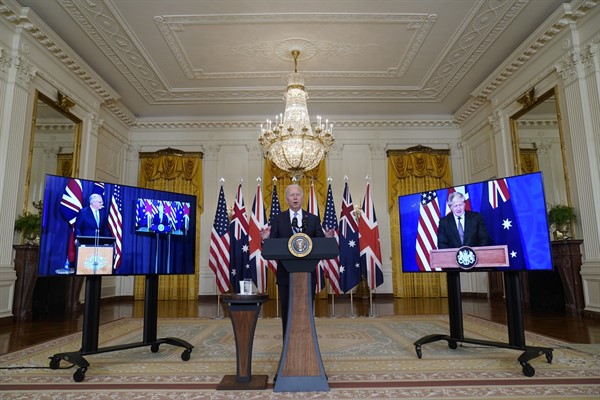The newly announced nuclear-powered submarine deal and trilateral security partnership between the U.S., the U.K. and Australia is remarkable for the sheer range of regional and subject matter experts needed to make sense of it. Like the proverbial three blind men and the elephant, it means something very different depending on where you grab hold of it.
Some of issues raised by the sub deal, particularly over the technical specifications and proliferation concerns, remain open questions that will only be answered 18 months from now, when the framework agreement is due to be finalized in an actual contract, although that timeline is ambitious. Others, like its long-term impact on French-U.S. relations, will take longer to determine.
But in other ways, the AUKUS partnership, as it has been dubbed, is a clarifying moment for trends that have been taking shape over the first year of Joe Biden’s presidency. Three, in particular, are worth noting.

